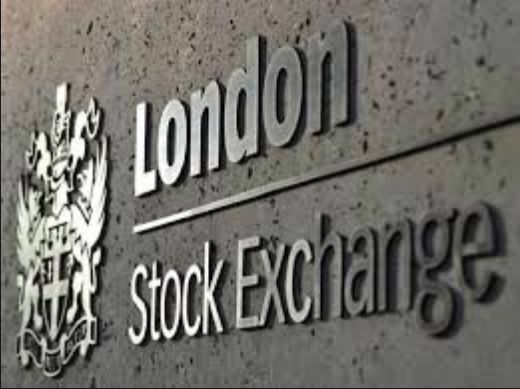The London Stock Exchange (LSE) is one of the oldest and most influential stock exchanges in the world. For centuries, it has played a crucial role in shaping the global economy, facilitating the flow of capital, and supporting businesses in the UK and beyond.
In this blog post, we will provide a historical overview of the LSE and explore its current state, including recent developments and future plans.
A Brief History of the LSE
The origins of the LSE can be traced back to the coffeehouses of 17th-century London, where merchants and traders gathered to buy and sell shares in various companies. In 1698, a group of brokers decided to formalize this system and establish a formal stock exchange.
They met regularly under a buttonwood tree on Wall Street in New York City, which led to the founding of the New York Stock Exchange. Meanwhile, the LSE was officially founded in 1801, with its first home located in a coffeehouse on the City’s Change Alley.
The LSE quickly became an important center of finance and commerce, attracting investors from around the world. Over the years, the exchange saw many changes, including the adoption of electronic trading in the 1980s and the merger with the Milan Stock Exchange in 2007.
Today, the LSE is a global financial powerhouse, with a market capitalization of over £3 trillion and more than 2,500 listed companies.
Current State of the LSE
The LSE is an integral part of the UK economy, providing businesses with access to capital and supporting job creation and economic growth. The exchange is home to some of the world’s most valuable and innovative companies, including BP, Unilever, and AstraZeneca. It is also a hub for international trading, with more than half of the companies listed on the exchange coming from outside the UK.
In recent years, the LSE has faced several challenges, including increased competition from other global exchanges and uncertainty caused by Brexit. However, the exchange has remained resilient and continues to attract new listings and investments.
In 2020, the LSE completed its acquisition of financial data provider Refinitiv, creating a new global leader in financial markets infrastructure. The deal is expected to provide new opportunities for growth and innovation and to position the LSE for long-term success.
Future Plans for the LSE
Looking to the future, the LSE has ambitious plans to continue its growth and expansion. One key area of focus is technology, with the exchange investing heavily in new digital platforms and solutions.
These innovations will help to improve efficiency and transparency, making it easier for investors to trade and access information. The LSE is also committed to sustainability, with a goal to become carbon neutral by 2030 and to promote sustainable investment practices across the industry.
Another priority for the LSE is to expand its reach and influence on a global scale. The exchange has already established partnerships with other exchanges around the world, including the Shanghai Stock Exchange and Borsa Istanbul.
These partnerships have helped to increase the LSE’s visibility and influence in key global markets, and the exchange is exploring new opportunities for collaboration and growth.
In addition, the LSE is also focused on improving its accessibility and connectivity as a London transport hub. The exchange is conveniently located in the heart of the city, with excellent public transportation links, including the nearby Bank and Monument tube stations.
Photo by: allposters.com
Tips for Maximizing the Benefits of the LSE
The London Stock Exchange is an exciting and dynamic place to invest your money. Here are some tips for making the most of your investment experience on the LSE:
- Do Your Research: Before investing in any company on the LSE, it is essential to do your research. This includes analyzing the company’s financial statements, studying industry trends, and understanding the competitive landscape.
- Stay Up-to-Date: The stock market can be volatile, so it is important to stay up-to-date with the latest news and market trends. Keep an eye on economic indicators such as interest rates, inflation, and GDP growth, as well as political developments that could affect the markets.
- Diversify Your Portfolio: Diversification is key to managing risk and maximizing returns. By investing in a range of companies across different sectors and geographies, you can reduce the impact of market fluctuations on your portfolio.
- Use Limit Orders: Limit orders allow you to specify the price at which you want to buy or sell a particular stock. This can help you to avoid buying or selling at unfavorable prices and ensure that you get the best possible value for your money.
- Consider Using a Broker: If you are new to investing or don’t have the time or expertise to manage your investments yourself, consider using a broker. A broker can provide valuable advice and support, helping you to make informed investment decisions.
- Stay Disciplined: It can be tempting to react emotionally to market fluctuations, but it is important to stay disciplined and stick to your investment strategy. This means avoiding making impulsive decisions based on short-term fluctuations in the market and focusing on your long-term investment goals.
By following these tips, you can make the most of your investment experience on the London Stock Exchange and increase your chances of achieving your financial goals.
Conclusion
The London Stock Exchange has a long and storied history, and it continues to play a crucial role in shaping the global economy. Despite challenges and uncertainties, the exchange remains a vital center of finance and commerce, providing businesses with access to capital and supporting economic growth.
With its ambitious plans for growth and innovation, the LSE is well-positioned to remain a global leader in financial markets infrastructure for years to come.
Authors bio
Lucas Green is a young digital marketing enthusiast from Phoenix, Arizona, US. Passionate about graphic design, social networking, content writing, and business in general. In his spare time, he writes extensively about graphic design, traveling, and business for SEO Magazine- SEO Turnover













Comments